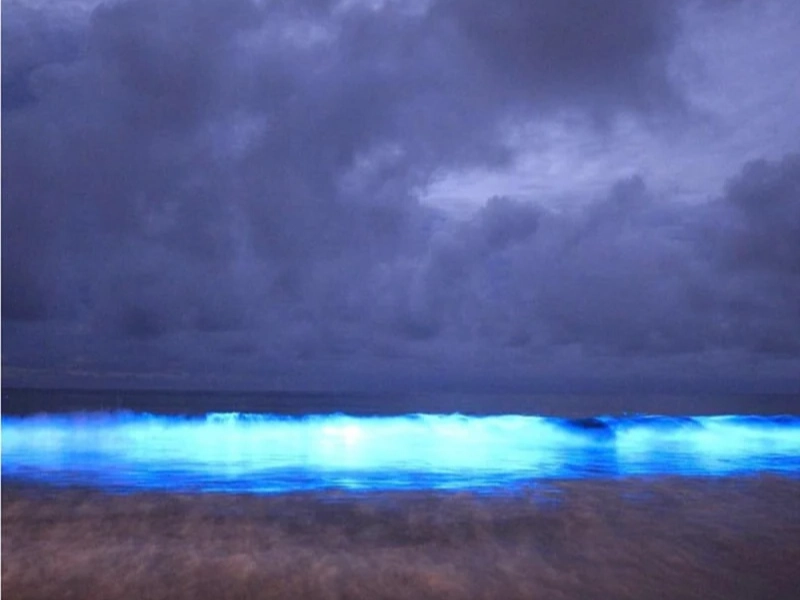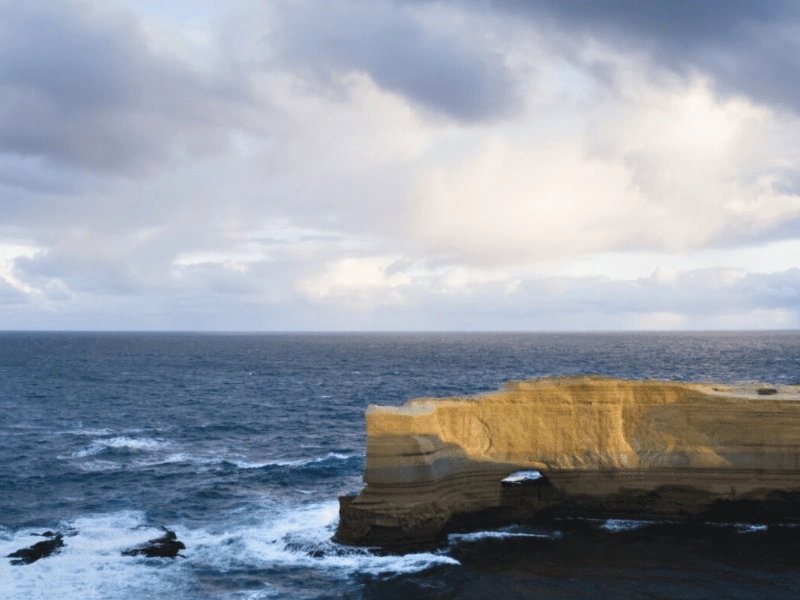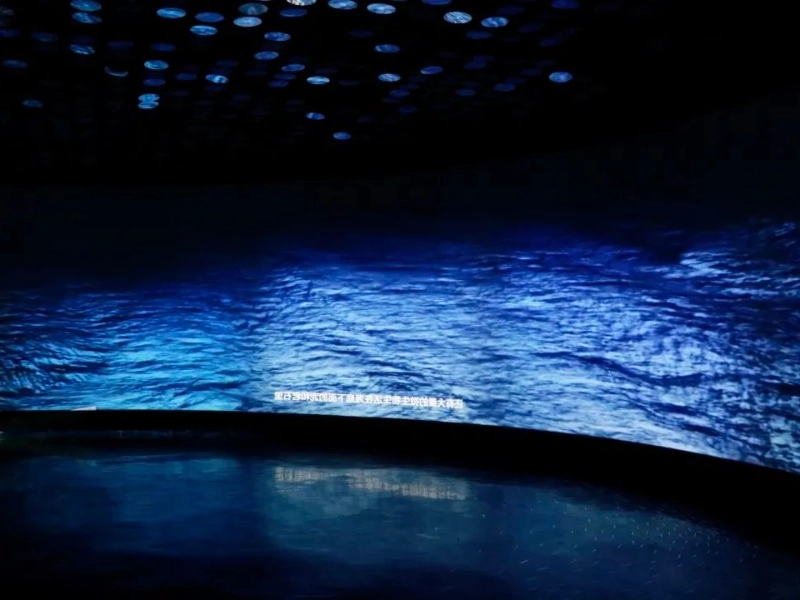Diving at night allows you to view aquatic life that just prowls the ocean after dark. Among the features that distinguish a night dive are creatures like octopus, bioluminescent jellyfish and sea snakes. Try, if at all feasible, dive the same spot you intend to night dive in during the day to assist you orient yourself underwater at night. You should also get acquainted with the hand signals used undersea for communication.

 Though night diving is exciting and unexpectedly peaceful, jumping into the pitch black ocean can be scary. Once darkness falls, marine life including octopus, bioluminescent jellyfish, big crabs and lobsters that are nearly hard to see during the day shows up in profusion.
Preparing for a night dive is best done during daylight, when you can get acquainted with the dive site and your gear. To avoid surface currents, if at all feasible select a dive site shielded by the reef.
Before you enter the sea, talk to your friend about the dive plan. Learn how to employ light signals—such as moving your light up and down or forming a circle—so that you might communicate underwater without upsetting the habitat.
Knowing the terrain of your dive site will also simplify night navigation. Make sure you have at least one main and one backup light with rechargeable batteries. Name any noteworthy sites you could be able to refer to, such coral bombies or rock formations.
Though night diving is exciting and unexpectedly peaceful, jumping into the pitch black ocean can be scary. Once darkness falls, marine life including octopus, bioluminescent jellyfish, big crabs and lobsters that are nearly hard to see during the day shows up in profusion.
Preparing for a night dive is best done during daylight, when you can get acquainted with the dive site and your gear. To avoid surface currents, if at all feasible select a dive site shielded by the reef.
Before you enter the sea, talk to your friend about the dive plan. Learn how to employ light signals—such as moving your light up and down or forming a circle—so that you might communicate underwater without upsetting the habitat.
Knowing the terrain of your dive site will also simplify night navigation. Make sure you have at least one main and one backup light with rechargeable batteries. Name any noteworthy sites you could be able to refer to, such coral bombies or rock formations.
 Although night diving can be a little more frightening than other kinds of scuba dives, the reality is that it is rather safe with the right equipment and instruction. The only risk, with extremely restricted visibility, is a diver who has not followed all the correct procedures and is not adequately ready for this kind of dive.
It is generally advised that a diver bring a torch with them on every dive and utilise a lamp to highlight their dive location due of the low visibility. Additionally crucial is ensuring that your friend and you have decided upon hand signals to indicate an issue during the dive.
Perfect Buoyancy is also a fantastic lesson to learn before undertaking any night dives since judging your buoyancy at night would be far more difficult than during the day. Good buoyancy control is therefore rather important since unintentional kicking into or rubbing against marine environments may cause damage.
Although night diving can be a little more frightening than other kinds of scuba dives, the reality is that it is rather safe with the right equipment and instruction. The only risk, with extremely restricted visibility, is a diver who has not followed all the correct procedures and is not adequately ready for this kind of dive.
It is generally advised that a diver bring a torch with them on every dive and utilise a lamp to highlight their dive location due of the low visibility. Additionally crucial is ensuring that your friend and you have decided upon hand signals to indicate an issue during the dive.
Perfect Buoyancy is also a fantastic lesson to learn before undertaking any night dives since judging your buoyancy at night would be far more difficult than during the day. Good buoyancy control is therefore rather important since unintentional kicking into or rubbing against marine environments may cause damage.
 Learning the hand signals for underwater communication may be wise if you are diving at night. This will let your friend know you're good and signal to them should things go wrong.
You also want to become acquainted with the terrain of your dive site. Knowing where a ledge is will help you negotiate your way back up after a dive, even if forms and shapes might vary in the dark.
Seeing bioluminescence is also rather remarkable on a night dive. Moving these little plankton-type animals causes them to generate a light. With a flashlight, they are visible; but, you should try to minimise the impact of your light to prevent blinding your friend and generating glare for any other aquatic life.
Make sure your friend and you have a primary, backup, and tank light. Before diving into the lake, you ought to also check the batteries on your lights. Your next trip could also benefit from your considering a personal locating device (PLD).
Learning the hand signals for underwater communication may be wise if you are diving at night. This will let your friend know you're good and signal to them should things go wrong.
You also want to become acquainted with the terrain of your dive site. Knowing where a ledge is will help you negotiate your way back up after a dive, even if forms and shapes might vary in the dark.
Seeing bioluminescence is also rather remarkable on a night dive. Moving these little plankton-type animals causes them to generate a light. With a flashlight, they are visible; but, you should try to minimise the impact of your light to prevent blinding your friend and generating glare for any other aquatic life.
Make sure your friend and you have a primary, backup, and tank light. Before diving into the lake, you ought to also check the batteries on your lights. Your next trip could also benefit from your considering a personal locating device (PLD).